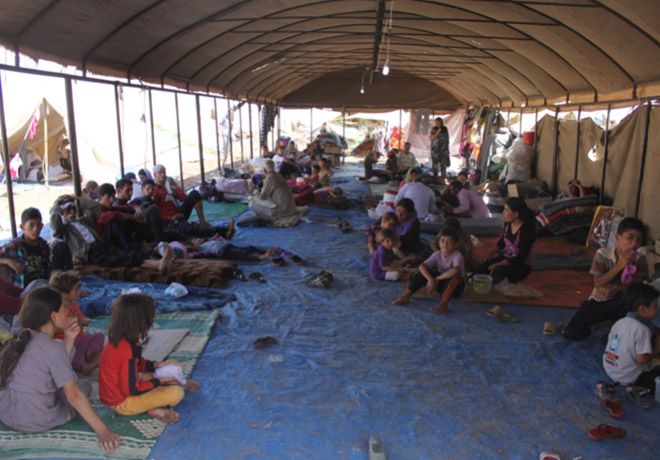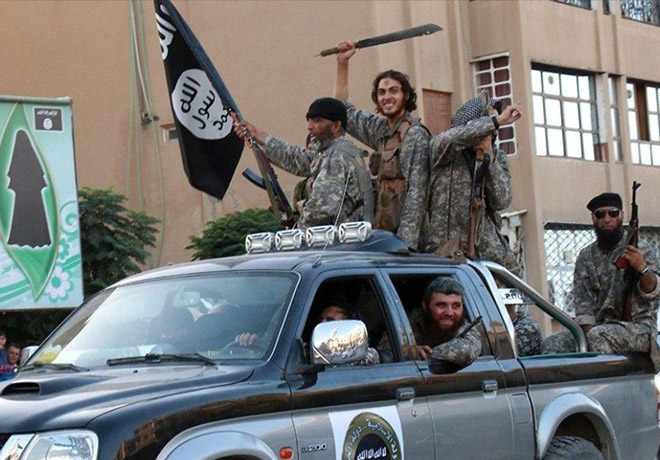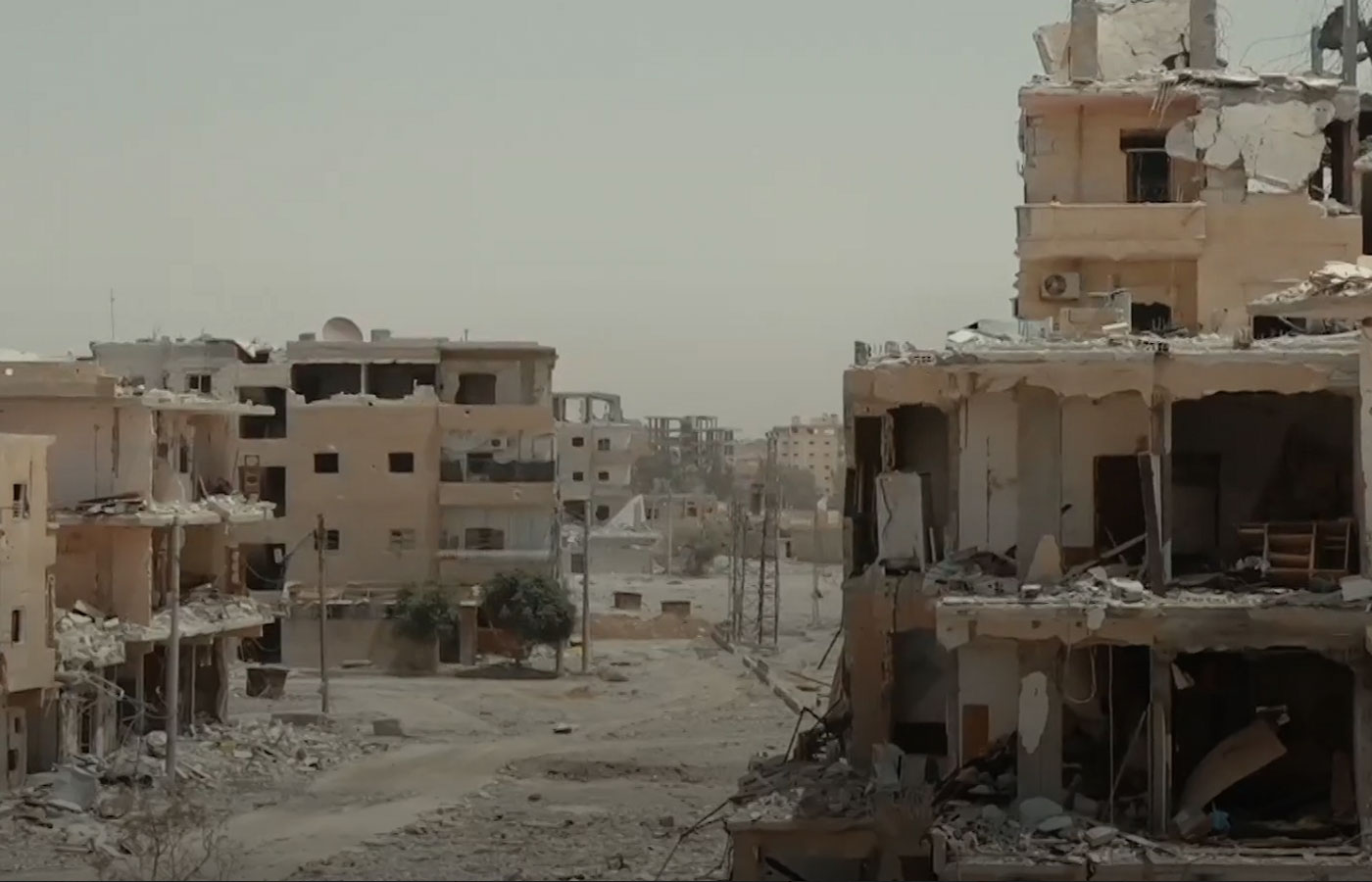Introduction
Religious persecution around the world is on the rise, perpetrated by both states and non-state actors.[1] Atrocities, including mass killings, physical abuse, rape and sexual violence, abductions, and extortion, are perpetrated against people of faith because they express their religious belief, manifest their religious belief in the public or merely belong to or identify themselves with a religious group.[2]
This article focuses on the case of Islamic State (Daesh) atrocities committed against religious minorities in Syria and Iraq, addressing the nature of the atrocities; the current status of various steps that have been taken in response; and what other steps in the legal and political realms are needed to address the issue of religious persecution.
Daesh genocide against religious minorities in Syria and Iraq
Some of the most glaring recent examples of religious persecution are the mass atrocities perpetrated by Daesh, one of the most violent terror groups in the world. Daesh became especially notorious for its methods of killings that included burning people alive in cages, beheadings, or throwing people from high buildings in order to punish anyone who opposed its rule.
However, Daesh became even more infamous because of its genocidal atrocities perpetrated against religious minorities in Syria and Iraq, and specifically the Yazidi and Christian minorities. These atrocities differ from those perpetrated against the wider population of Syria and Iraq. The main difference is that, in its attempt to establish a purely Islamic state, Daesh aimed at the eradication of these minority groups.
The real scope of the atrocities is yet to be established and mass graves continue to be discovered.
As confirmed in UN Security Council resolution 2379, Daesh has perpetrated crimes including ‘murder, kidnapping, hostage-taking, suicide bombings, enslavement, sale into or otherwise forced marriage, trafficking in persons, rape, sexual slavery and other forms of sexual violence, recruitment and use of children, attacks on critical infrastructure, as well as its destruction of cultural heritage, including archaeological sites, and trafficking of cultural property.’ The real scope of the atrocities is yet to be established and mass graves continue to be discovered.
These atrocities perpetrated against religious minorities were committed with the specific intent to destroy the groups in whole or in part. Minority religions did not have a place under Daesh’s barbaric rule. This is clear from Daesh propaganda calling for killing ‘infidels’, including that featured in its magazine Dabiq, but also can be inferred from the nature of the atrocities themselves.

The response to date
The atrocities perpetrated by Daesh both against religious minorities targeted for eradication and also against the populations of Syria and Iraq in general, required an urgent response. Some steps have been already taken but have not been fully implemented yet. These include steps to stop the atrocities, assist the survivors, and bring the perpetrators to justice.
Stopping the atrocities
Despite the successes, even when all factions of Daesh are defeated, Daesh ideology will still remain.
The Global Coalition against Daesh,[3] consisting of over 78 partners from all over the world, conducted series of attacks against the factions of Daesh in Syria and Iraq. Despite the common effort, it took over two years to recover most of the territories in Iraq from Daesh. Despite the fact that the Iraqi government announced that the fight against Daesh in Iraq is over and US President Donald Trump has now made a similar claim in relation to Syria, remnants of Daesh remain active in both countries. Furthermore, the situation in Syria is more complex, complicated by the ongoing civil war that undermines effective combat against Daesh.
Despite the successes, even when all factions of Daesh are defeated, Daesh ideology will still remain. More will need to be done to neutralize such ideology in order to ensure that no similar atrocities happen again in the future when the conditions allow.
Assisting the survivors
The survivors of the Daesh atrocities require a wide range of assistance to address their short and long-term needs, including medical aid, humanitarian assistance, and help with homes, businesses and infrastructure in the regions destroyed by Daesh.[4]
As of January 2019
9,060
Iraqi Christian families returned to the Nineveh Plains
Two and a half years after the liberation of some of the regions previously held by Daesh, some homes are already rebuilt, allowing the lawful owners to return. The Nineveh Reconstruction Committee estimates that, as of January 2019, approximately 9,060 Iraqi Christian families (41,016 people) had already returned to the Nineveh Plains. This constitutes more than a third of the population of the Nineveh Plains before 2014. The sooner towns and villages are up and running, the sooner people will start returning to their homes and so preserve the existence of the minority groups in the region. This would relieve the pressure from other areas and countries that, over the past few years, have seen thousands of IDPs or refugees.
Bringing the perpetrators to justice
Ensuring that Daesh fighters are brought to justice is a crucial step, but it is still far from being achieved:
- Some have been prosecuted or await prosecution in Iraq. However, they are being prosecuted on terrorism charges only and without any involvement of the victims (as witnesses).
- In other countries, including European ones, where Daesh foreign fighters have returned home, only a small number of prosecutions have been undertaken, again on terrorism or terror-related charges only. Many fighters continue to roam with impunity.
Ensuring that Daesh fighters are brought to justice is a crucial step, but it is still far from being achieved.
With more than 5,000 Daesh foreign fighters originating from Europe (3,700 from the UK, Belgium, France, and Germany alone), there is a serious risk to international peace and security. The response to returning Daesh foreign fighters should be a priority of states’ counter-terrorism strategy, but still raises serious concern.
Despite the growing consensus among international institutions and states that Daesh committed genocide and crimes against humanity, not a single Daesh fighter has been charged with genocide or crimes against humanity. Justice will not be achieved if we continue to downplay the level of the atrocities. Given the gravity, scale, and systematic nature of the crimes committed by Daesh fighters, they should be prosecuted for their role in genocide, crimes against humanity, and war crimes in both domestic and international tribunals.

Since crimes perpetrated by Daesh were not limited to Iraq and Syria, but extended to other Arab countries as well as Europe, the international community must be fully involved to ensure that justice is achieved. Ultimately, Daesh gained the support of tens of thousands of individuals who came from all parts of the world. Hence, the international community needs to work with Iraq and Syria to address these issues together. The precedent set by the international response to previous mass atrocities would provide viable options to progress the prosecution of Daesh fighters. For example, a UN Security Council resolution could enable the International Criminal Court to conduct such prosecutions (as it has done in relation to Darfur and Libya) or establish an ad hoc tribunal (as has been done in relation to Rwanda and Bosnia).
In addition, we need to put the victims and survivors first. We need to ensure that they are fully able to participate in any criminal proceedings taken against Daesh fighters: that they need to have their ‘day in court’ and have an opportunity to tell their stories. This needs to happen on both a domestic and an international level. Their participation in the process is key. Their stories are a part of the larger story of how Daesh perpetrated the ‘crime of crimes’ in Iraq and Syria. Their full participation will also assist the process of reconciliation and forgiveness that is essential to build a better future for the survivors and the generations to come.[5]
What needs to be done
More needs to be done to assist those persecuted for their faith.
In addition to the above-mentioned steps, more needs to be done to assist those persecuted for their faith. In order to ensure a future for religious minorities, especially post-conflict, it is crucial that adequate legal mechanisms are put in place and then enforced, thus allowing them to stay in their regions and live in accordance with their religious beliefs:
- Ensuring that the human rights provisions enshrined in constitutions, whether general or specific for minority groups, meet international standards is crucial for the survival of minorities in the countries where they potentially face annihilation.
- However, those rights must also be adequately enforced.

Last year, together with Aid to the Church in Need (ACN) (https://acnuk.org), I proposed that this task could be aided by the establishment of a new Iraqi Special Envoy on Freedom of Religion or Belief or a Special Envoy on Minority Issues. The mandate could be modelled on the office of the UN Special Rapporteur on Freedom of Religion or Belief or the UN Special Rapporteur on Minority Issues, although with a much narrower geographical focus limited to Iraq. The Special Envoy could prepare annual reports on the situation of Christians (and other religious minorities) in Iraq, the implementation of protective security mechanisms, and on the progress made in ensuring that Iraqi Christians are fully integrated into the society.
Implications
Religious persecution is an issue that affects too many people in too many parts of the world. This will continue or even intensify if we continue to look away, take only symbolic steps, or act too late or not at all. The recent mass atrocities perpetrated by Daesh against religious minorities in Syria and Iraq show what can happen when we fail to act. Such inaction can no longer be justified in light of such atrocities and in light of the suffering of vulnerable religious groups. It is crucial for us all to engage politicians and diplomats to influence our governments’ foreign policy so that they take pro-active steps to protect vulnerable populations and not just make empty promises.
Evangelical leaders could play an important role in uniting the church in a common purpose to protect religious minorities that face the risk of being removed from the social fabric of the Middle East.
The situation of religious minorities persecuted by Daesh, or any other terror groups that may emerge in the future, also requires a united response. Evangelical leaders could play an important role in uniting the church in a common purpose to protect religious minorities that face the risk of being removed from the social fabric of the Middle East. This does not only mean uniting religious communities or non-governmental organizations but also includes governments and international institutions.
We need governments and international bodies to make protecting religious minorities persecuted for their faith a policy priority. Several NGOs advocate in national and international opportunities for persecuted communities, such as ACN, CSW, and Yazda.[6] Anyone can support these organizations and so contribute to the effort to preserve the presence of the endangered communities in the region.
In order to encourage this process, I have been advocating the establishment of an International Day Commemorating Victims and Survivors of Religious Persecution on 3 August, the day in 2014 when Daesh attacked Yazidis in Sinjar, before attacking Christian minorities in the Nineveh Plains. A number of NGOs (including ACN, CSW and Yazda) supported the initiative and some 30 British parliamentarians supported an Early Day Motion in parliament promoting the initiative.[7] The proposal was also included in the US government’s July 2018 Potomac Plan of Action.[8]
Such an international day could be used to introduce action plans aimed at ensuring the future of religious minorities persecuted for their faith. However, before this happens, it is crucial to engage state and non-state actors to support this proposal. Unity of purpose is key, and we all have a part to play in this.
Endnotes
- See http://www.pewresearch.org/fact-tank/2018/06/21/key-findings-on-the-global-rise-in-religious-restrictions/
- Editor’s Note: See article by Yousaf Sadiq, entitled, ‘How should we respond to the persecution of Christians’, in January 2019 issue of Lausanne Global Analysis https://lausanne.org/content/lga/2019-01/how-should-we-respond-to-the-persecution-of-christians.
- See http://theglobalcoalition.org/en/home/
- Editor’s Note: See article by Gladys Mwiti and Bradford Smith, entitled, ‘Turning the Church’s Attention to Mental Health’, in November 2018 issue of Lausanne Global Analysis https://lausanne.org/content/lga/turning-the-churchs-attention-to-mental-health.
- Editor’s Note: See article by Wafik Wahba, entitled, ‘Witnessing to the Gospel through Forgiveness’, in January 2018 issue of Lausanne Global Analysis https://lausanne.org/content/lga/2018-01/witnessing-gospel-forgiveness.
- See https://www.csw.org.uk and https://www.yazda.org.
- See https://edm.parliament.uk/early-day-motion/51949/annual-international-day-commemorating-the-victims-and-survivors-of-religious-persecution
- See https://www.state.gov/j/drl/irf/religiousfreedom/c79914.htm

